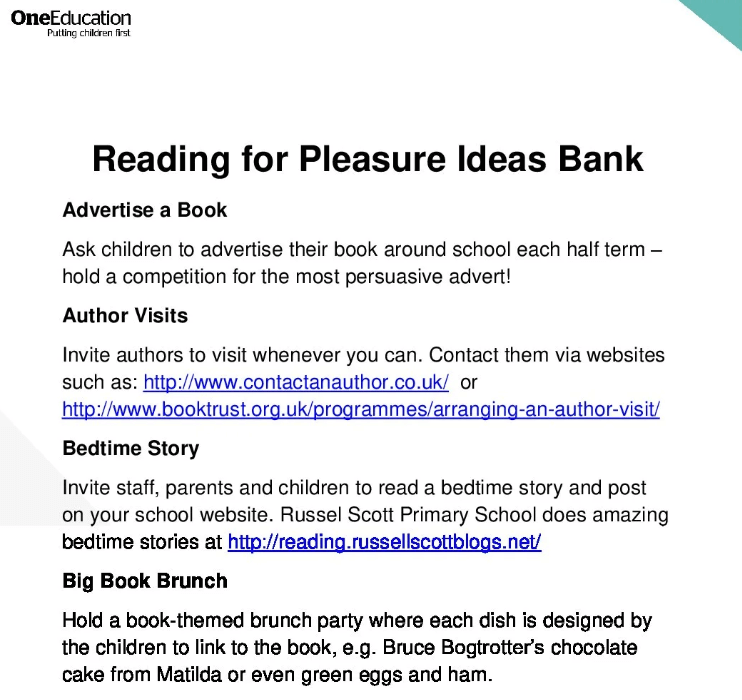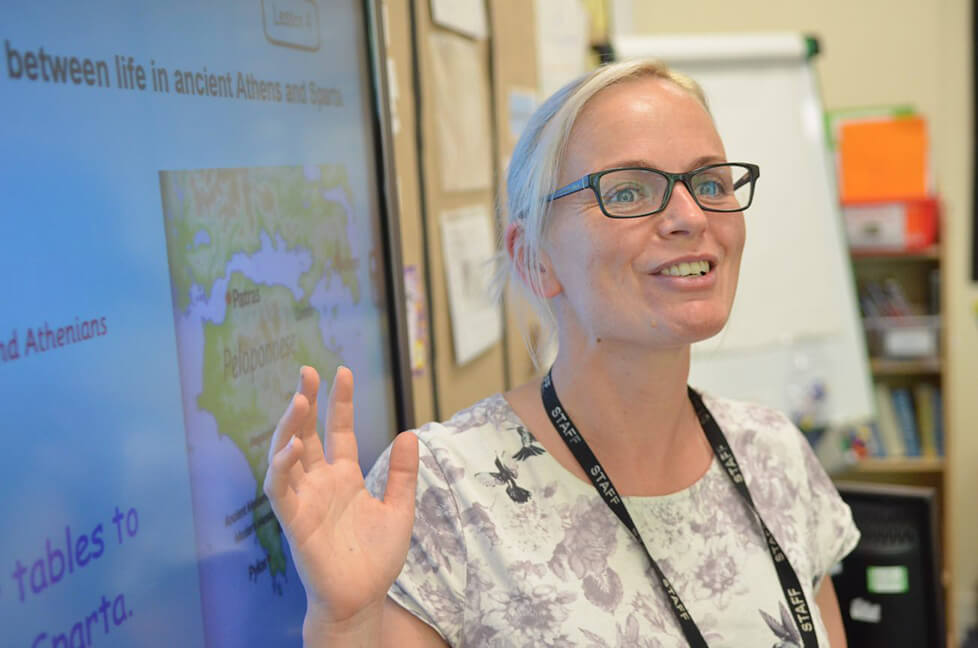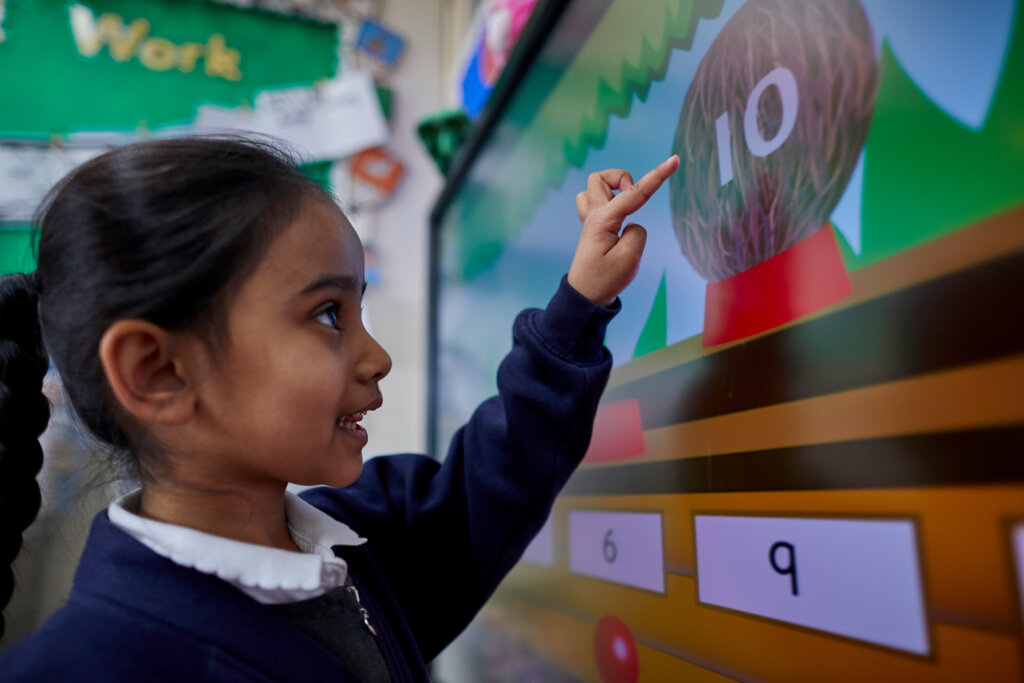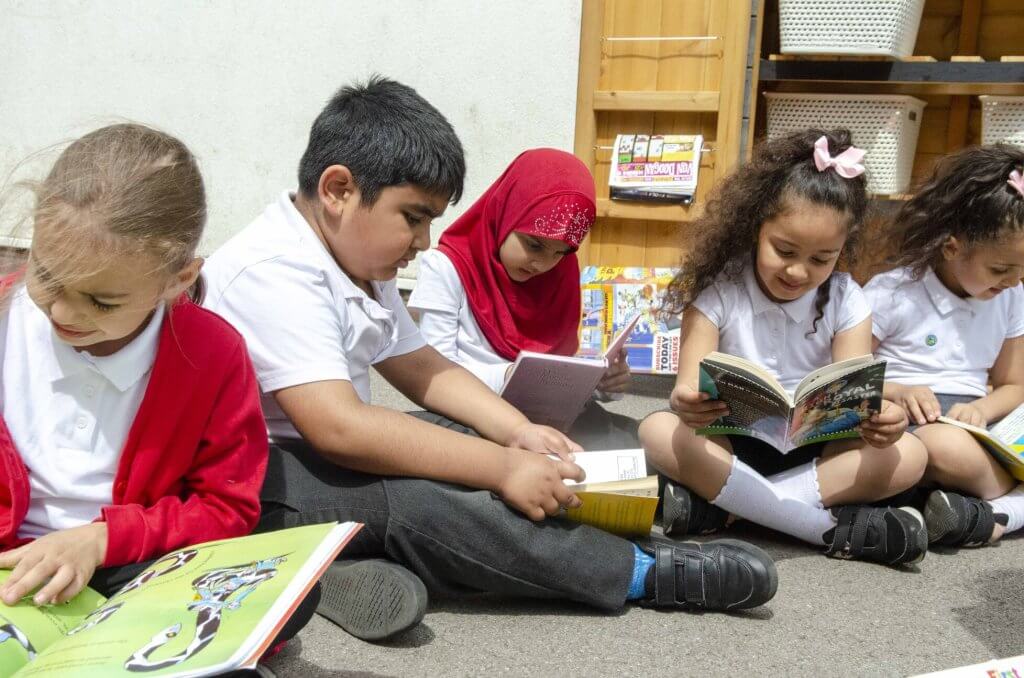This May, schools, academies, and other educational settings are coming together to mark National Share a Story Month. Established by the Federation of Children’s Book Groups (FCBG), this event is an opportunity to celebrate storytelling and story sharing.
Every year, events and competitions take place across the UK to engage children in reading through an exciting theme. The theme for 2024 is “A Feast of Stories,” encouraging children to discover the fabulous meals that exist in fiction. This theme reminds us of the remarkable way that writers can invoke the senses through descriptive language and vivid imagery.
As we know, reading for pleasure is the single biggest indicator of a child’s future success, advancing their social, emotional and cognitive skills. But National Share a Story Month is not only about celebrating the benefits of reading, but recognising its ability to bring people together.
Worryingly, research shows that reading for pleasure has fallen to its lowest level since 2005, as fewer than 1 in 2 (47.8%) children and young people aged 8 to 18 say that they enjoy reading. This is even lower for children growing up in poverty.
Often, we are focused on what we can do inside the classroom to instil a love of reading in our pupils, but it’s also important to consider how we can promote reading beyond the school walls. In this blog, we will discuss how we can encourage parents to read to their children at home, ensuring the magic of reading continues to thrive not only during school hours but throughout a child’s life.
How to encourage reading at home
Research shows that 58% of children aged 3 – 4 years old are read to daily or nearly everyday, as parents try to get them “school ready.” However, once children have started school, shared daily reading falls to 44%. This suggests that many parents believe reading is a subject like any other, to be taught and learned in the classroom.
Of course, reading proficiency is essential to children’s academic success, equipping them with the skills to access the wider curriculum. Reading supports children with communication and language development, critical thinking, working memory, and more. But it’s important to remember that reading is not only a skill, but a pleasure.
At the One Education Literacy Conference 2022, we were delighted to welcome keynote speaker Dr Rachael Levy, Associate Professor at UCL, Institute of Education, who spoke about her research investigating shared reading practices at home. We learned that parents who regularly read to their children are not necessarily motivated by the academic advantages reading can bring – they did it simply because their children enjoyed it.
Dr Levy’s research showed that shared reading is about families bonding and being together. Even parents who did not consider themselves readers, or who struggled with reading while they were at school, enjoyed reading to their children as a uniquely rewarding experience. With this in mind, we can optimise our approach to engaging parents by emphasising the pleasure of reading, rather than solely focusing on the educational benefits. As Dr Levy explained, before we promote reading as something that families should do – we should first understand reading as a way of doing family.
Reading at home: Ideas & Activities
This May, take the opportunity to remind parents of the pleasures of reading – the importance of spending time together, creating a relaxing environment, building a routine, and ultimately inspiring a love of reading that resonates as deeply with the parent as it does for the child.
Take a look at the following ideas to help get families started on their reading journey.
- Reading Workshops
Workshops are a powerful tool to engage parents and empower them with the skills to support their child’s reading journey. Share your top insights and ideas to help parents make the most of the shared reading experience, including tips on how to choose engaging texts, create a reading-friendly environment, establish a storytime routine, participate in book-talk, and more.
- Book News
Keep reading at the forefront of parents’ minds by sharing book-related news, information and resources. For example, you could write a book column in the school newsletter, a blog on the school website or even a termly magazine. This is a great way to share book recommendations, notices for literary events, and updates on what children are reading in school.
- Library Visits
The library can be an invaluable resource for families who cannot always afford to buy new books for their child to read. Plus, libraries often organise book clubs, author visits, storytime sessions and other events that fuel children’s passion for reading. Make sure to share leaflets with families to raise awareness about the library and all the services it has to offer. Even better, organise a school trip and invite parents to attend. Once they have made that all-important first step, families can continue returning to the library together.
- Reading Games
Transform reading into a challenge that families can embrace as a team. Whether it’s by answering quizzes, writing reviews, or playing a game of book bingo, giving parents and children the opportunity to work together towards a goal can further heighten the fun and excitement of reading.
- Book Launch
Classroom publishing houses are an incredible way to inspire children to write their own stories. This gives pupils the opportunity to see their own work published, displayed on shelves in the school library, and shared with the rest of the class. Why not go one step further and invite parents to attend the book launch? There’s no better way for parents to experience the joy of books and storytelling than to read their child’s own words.

Looking for more ideas to promote the joy and lifelong benefits of reading? Take a our A – Z Resource Bank of Reading for Pleasure Ideas for further inspiration!
We wish you all a wonderful National Share a Story Month. Happy reading at school, at home, and everywhere you go!
If you would like further advice and guidance on how to support the readers in your classroom, find out how to create a culture of reading in your school with the One Education Reading Award.
We also have a number of resources to support the teaching of reading with our Reading Gems approach.
Want to know more? Get in touch to learn about our literacy training and consultancy services.
Please complete the form below and we will get in contact as soon as we can to help you with your query.
















